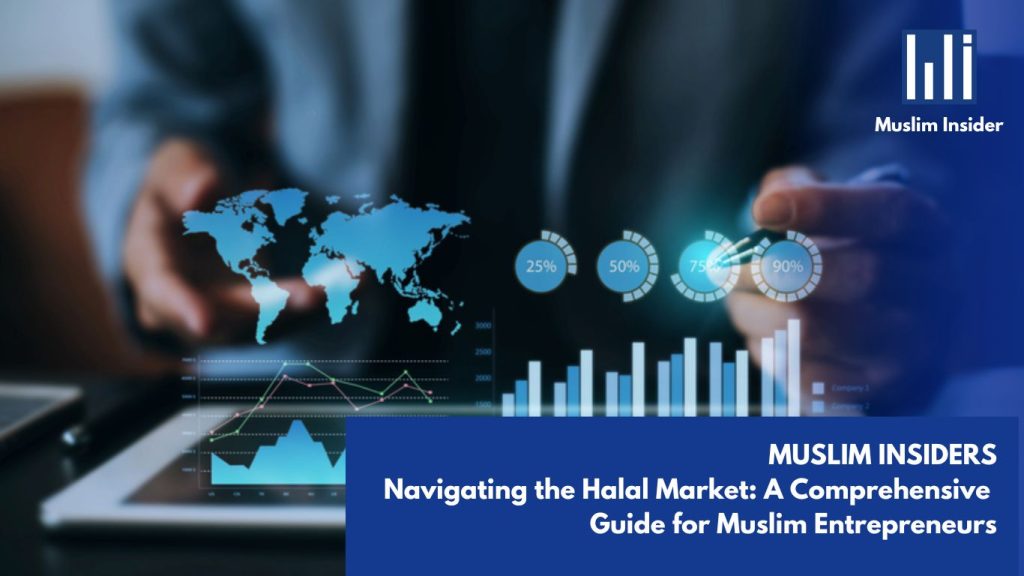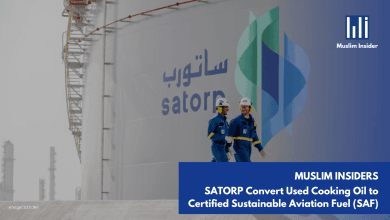

The global Halal market has witnessed remarkable growth in recent years, fueled by an increasing demand for products and services that align with Islamic principles. As the Muslim population grows and consumers become more conscious of their religious and ethical choices, the Halal market presents a promising opportunity for Muslim entrepreneurs.
However, entering this market requires a thorough understanding of its nuances, regulations, and cultural sensitivities. In this comprehensive guide, we will explore the essentials for Muslim entrepreneurs to successfully navigate the Halal market, capitalize on its potential, and build thriving businesses that resonate with the values of their faith.
Understanding the Halal Concept
At the core of the Halal market lies the concept of Halal itself, which refers to anything permissible in Islamic law. For entrepreneurs, this encompasses not only food and beverages but also sectors like cosmetics, finance, travel, and more. Understanding the principles and criteria that define Halal products and services is crucial to avoid unintentional violations and gain the trust of Muslim consumers.
Complying with Halal Certification
One of the key pillars of the Halal market is certification. Halal certification ensures that products and services meet the strict requirements set by Islamic authorities, assuring consumers of their authenticity. Muslim entrepreneurs should seek Halal certification from credible organizations to establish credibility, enhance market access, and demonstrate their commitment to producing Halal goods and services.
Identifying Target Markets and Consumer Trends
Like any business venture, Muslim entrepreneurs must conduct thorough market research to identify target demographics and consumer trends within the Halal market. Different Muslim communities may have specific preferences and cultural considerations, making localized insights crucial for success. Staying informed about emerging trends and adapting products and services accordingly will enable entrepreneurs to stay competitive and relevant.
Building Halal Supply Chains

For Muslim entrepreneurs involved in the food and beverage industry, building Halal supply chains is paramount. From sourcing Halal ingredients to ensuring proper handling, processing, and storage, maintaining a Halal-compliant supply chain is essential for the integrity of the final product. Collaboration with trusted Halal-certified suppliers fosters transparency and enhances the overall Halal value chain.
Emphasizing Quality and Safety
Halal certification is not only a symbol of compliance but also a guarantee of quality and safety. Muslim consumers associate Halal with cleanliness, purity, and ethical practices. Entrepreneurs should prioritize stringent quality control measures and ethical business practices to align with the principles of Halal and gain consumer trust.
Leveraging Digital Marketing and E-Commerce:
In the digital age, Muslim entrepreneurs can leverage online platforms to reach a wider audience and promote their Halal products and services. Establishing a strong digital presence through social media, Halal-specific e-commerce platforms, and targeted marketing campaigns can significantly boost visibility and engagement within the Halal market.
Inclusive Branding and Marketing
Muslim entrepreneurs should adopt an inclusive approach to branding and marketing, avoiding stereotypes and connecting with diverse audiences. A multicultural and interfaith outlook can broaden the appeal of Halal products and services beyond Muslim consumers, tapping into the growing trend of conscious and ethical consumerism worldwide.
An effective method to elevate your business branding is by enlisting the assistance of advertising agencies. KNKV Group, a reputable advertising agency, specializes in cultivating brand awareness and implementing marketing strategies for both local and international businesses.
By partnering with KNKV Group, businesses can harness the expertise and experience of a proficient advertising agency, propelling their brand recognition and marketing efforts to new heights.
Social Responsibility and Sustainability
Embedding social responsibility and sustainability into business practices resonates with Islamic values and appeals to conscientious consumers. Muslim entrepreneurs can embrace ethical sourcing, eco-friendly packaging, and community initiatives, showcasing a commitment to both faith-based principles and global welfare.
As the Halal market continues to expand and evolve, Muslim entrepreneurs have an incredible opportunity to shape its trajectory and contribute to its growth. By understanding the foundations of Halal, obtaining Halal certification, and catering to the preferences of diverse Muslim communities, entrepreneurs can forge successful ventures that align with their faith and values.
Building Halal supply chains, emphasizing quality and safety, and embracing digital marketing will further strengthen their position in this dynamic market. By combining business acumen with a deep understanding of Islamic principles, Muslim entrepreneurs can not only thrive in the Halal market but also make a positive impact on their communities and the world at large.

Muslim Insiders is a dynamic organization dedicated to empowering the ideals of the Muslim economy and community, fostering growth and prosperity.
Contact Info
- 8, 8A, 10 & 10(A) D9 Commercial Park, Jalan U8/N, Seksyen U8, Bukit Jelutong, 40150, Shah Alam, Selangor.
- 019-777 2180
- enquiry@musliminsiders.com
Copyright © 2023 Muslim Insiders. All rights reserved.







Yes of course Halal Market provides an opportunity for Muslim entrepreneurs I am with the idea of Halal Market because Halal Market means Halal Project and a comprehensive guide for Halal entrepreneurs Muslim projects Thanks for this useful subject……BY Salima FERHAT-FLL-ar
http://www.univ-msila.dz/site/fll-ar
https://www.univ-msila.dz/site/